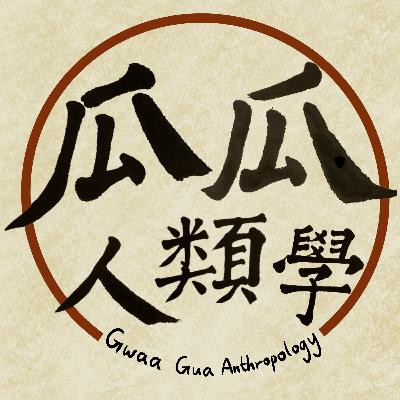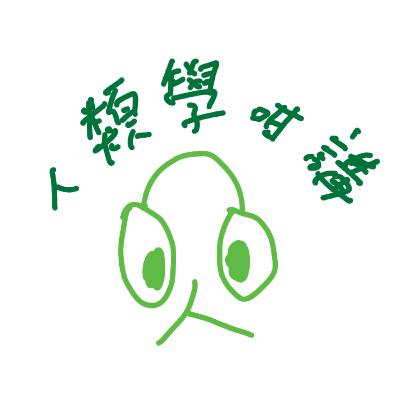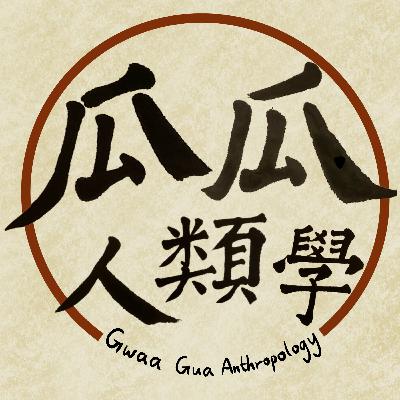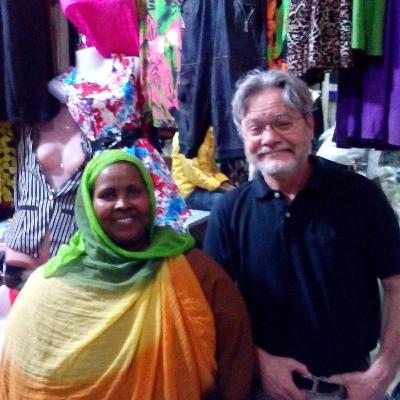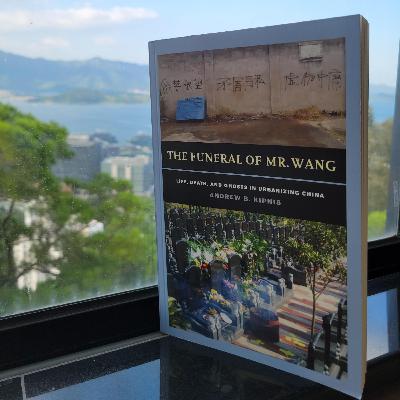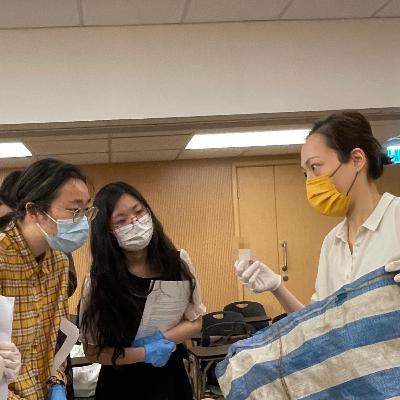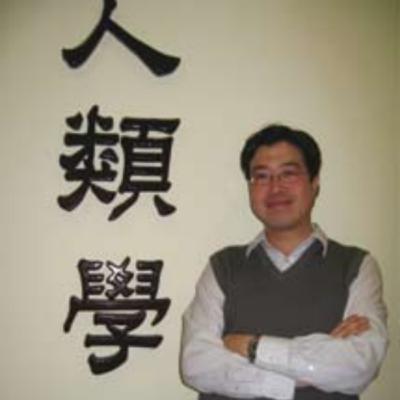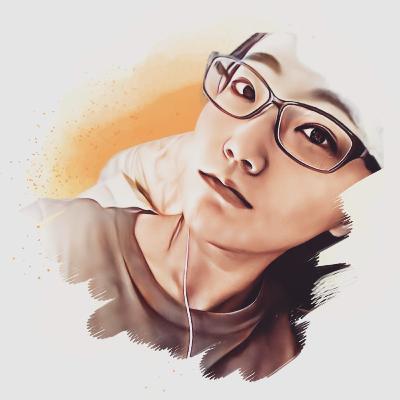Discover CUHK Anthropology Podcast 人類學與世界
CUHK Anthropology Podcast 人類學與世界

CUHK Anthropology Podcast 人類學與世界
Author: 香港中文大學人類學系 Department of Anthropology, The Chinese University of Hong Kong
Subscribed: 20Played: 74Subscribe
Share
© 香港中文大學人類學系 Department of Anthropology, The Chinese University of Hong Kong
Description
「人類學與世界」是由香港中文大學人類學系製作的播客,在每集節目之中,我們邀請學系老師、同學、系友以及其他嘉賓,從他們的經歷與研究出發,探討社會文化、日常生活、世界各地的多樣議題,希望從中帶出人類學的理解、價值和樂趣,與聽眾分享。
In this podcast, we dive deep into anthropology and hopefully bring out its joy and value. In each episode, we create inspiring conversations with faculty, students, alumni, and guests from relevant fields through personal sharing and intellectual discussion about a variety of topics of anthropological interest. This podcast is part of our effort to highlight anthropology’s relevance to society, culture, everyday life and the world, and to make it more accessible to all publics.
In this podcast, we dive deep into anthropology and hopefully bring out its joy and value. In each episode, we create inspiring conversations with faculty, students, alumni, and guests from relevant fields through personal sharing and intellectual discussion about a variety of topics of anthropological interest. This podcast is part of our effort to highlight anthropology’s relevance to society, culture, everyday life and the world, and to make it more accessible to all publics.
29 Episodes
Reverse
有人抱怨上班是毫無意義而且痛苦的,也有人工作得欲罷不能,從中找到滿足感。對於工作,為什麼人們會有如此不同的感受?而除了資本主義制度之下的「返工」,還有其他工作模式的可能性嗎?本集我們有幸邀請到本系講師 Dr. Tim Rosenkranz(他教授的課程包括「經濟、文化和權力」及「工作文化--認識廿一世紀的工作」),分享相關的人類學研究,討論當代工作之挑戰、想像及批判。主持:Misa、Ursula
(本集以英語進行)While many people complain that going to work is meaningless and painful, others cannot work enough and find a lot of satisfaction in it. How can we understand people’s different experiences? And, are there alternatives to work in the current capitalist society? In this episode, Dr. Tim Rosenkranz, Lecturer of the Anthropology Department who teaches courses including Economy, Power, and Culture and Working Cultures-Understanding Work in the 21st Century, will share anthropological studies, debates, and understandings of contemporary struggles, imaginations, and critiques of work in and beyond capitalism.Hosts: Misa, Ursula (This episode is conducted in English.)6’43 由「工作」到「資本主義下的工作」 From “work in general” to “work in Capitalism”9’40 資本主義前的社會模式 Before Capitalism 11’45 誰在剥削員工? Who is exploiting workers?14’55 異化的暴力 The violence of alienation 18’56 馬術治療研究及資本主義以外的可能性 Studyon equine therapy and possibilities beyond capitalism22’45 脫離效率思維,從照護層面反思工作 Reconsidering work from a care perspective instead of a productivity mindset39’40 全民基本收入能為人們帶來更大的工作自由嗎? Can Universal Basic Income provide greater freedom in work?42’02 我們的工作態度如何改變個人的工作體驗 How do our attitudes towards work change individual work experiences?推薦閱讀 Recommended Readings:Lee, Richard B .1998. “Non-Capitalist Work: Baseline For An Anthropology Of Work Or Romantic Delusion?”. Anthropology of Work Review, 18: 9-13. https://doi.org/10.1525/awr.1998.18.4.9Finkelstein, Maura. 2025. “Work Cannot Save Us but Let's Still Try: Labor, Utopias, and Futurity at an Equine Therapy Farm”.Anthropology of Work Review 46(1). https://doi.org/10.1111/awr.70002David Graeber. 2021. After the Pandemic, We Can’t Go Back to Sleep. https://jacobin.com/2021/03/david-graeber-posthumous-essay-pandemicDavid Graeber. 2014. Caring too much. That’s the curse of the working classes. https://www.theguardian.com/commentisfree/2014/mar/26/caring-curse-working-class-austerity-solidarity-scourgeCredit:Sound effect by ZapSplatOpening and Closing Music “Paradise Found” Kevin MacLeod (incompetech.com). Licensed under Creative Commons: ByAttribution 4.0 License-http://creativecommons.org/licenses/by/4.0/
如果,有兩份工作:一份人工高、福利好,但工作內容毫無意義;另一份工作所做的事情富有意義,但待遇較差。你會如何選擇?這並不是完全虛構的情境,在人類學關於工作文化的研究之中也有類似的例子。在本集節目中,我們會討論David Graeber對狗屁工作(bullshit job)的研究,以及Maura Finkelstein對馬術治療農場的員工之研究,亦會嘗試分析,爲什麽工作有時會令人感到如此辛苦、沮喪?主持:Misa、Ursula(本集以廣東話進行)If there were two job offers: one with high pay and great benefits, but the work itself is meaningless; the other involves meaningful work, but the compensation is poor. How would you choose? This isn't a purely fictional scenario; similar examples exist in anthropological studies of work culture. In this episode, we'll discuss David Graeber's research on bullshit jobs and Maura Finkelstein's study of employees at an equine therapy farm, and also try to explore just why people may sometimes find work so frustrating. Hosts: Misa, Ursula (This episode is conducted in Cantonese.)7’44 「狗屁工作」是「西工」嗎?Does "bullshit job" mean "shit job"?14’14 有意義但待遇差的工作:馬術治療農場的研究 A meaningful job with poor compensation: a study on an equine therapy farm16’58 從人類學角度分析工作體驗之差異的複雜性 An anthropological perspective on analyzing the complexity ofdifferences in work experiences19’26 返工似SM嗎?Is work similar to SM?22’30 人類學怎樣研究工作文化? How does anthropology study work culture?推薦閱讀 Recommended Readings:Graeber, David. 2018. Bullshit Jobs: A Theory. New York, NY: Simon & Schuster大衛·格雷伯. 2023.《40%的工作沒意義,為什麼還搶著做:論狗屁工作的出現與勞動價值的再思》. 台北:商周出版Finkelstein, Maura. 2025. “Work Cannot Save Us but Let's Still Try: Labor, Utopias, and Futurity at an Equine Therapy Farm”.Anthropology of Work Review 46(1). https://doi.org/10.1111/awr.70002 Credit:Sound effect by ZapSplatOpening and Closing Music “Paradise Found” Kevin MacLeod (incompetech.com). Licensed under Creative Commons: ByAttribution 4.0 License- http://creativecommons.org/licenses/by/4.0/系列介紹:「瓜瓜人類學」是香港中文大學人類學系推出的podcast節目,由人類學系的畢業生和同學製作,每集邀請不同領域的來賓對談訪問,探索充滿趣味和驚喜的人類學世界。這一系列節目旨在透過主持人與受訪者嘰哩呱啦的聊天,輕鬆分享人類學學習的經歷與體悟,以聲喚友,與大家暢談流行熱話、世界趨勢,例如科技、性別、族群等多元議題。我們希望與聽眾一起,一窺人類學人腦袋裡的奇思妙想。About the Series: “Gwaa Gua Anthropology” is a podcast project of the Department of Anthropology, The Chinese University of Hong Kong and is produced by anthropology students and graduates. This series aims to find delight in surprising insights and thought-provoking experiences, with guests from different cultural backgrounds and career fields joining the conversation and sharing their perspectives of anthropology. A wide variety of topics in everyday life will be covered, from trending news to global issues, from technology to gender to ethnicity and more. Join us and discover the “out-of-ordinary” encounters in the field of anthropology!
你可以在人類學的課上遇見不同的學生:本科生、研究生、副修生、偶爾還有來自各個其他學系的學生,為大家帶來不同的觀點。或許是為了滿足大學通識的要求,也可能是對特定議題乃至於人類學本身的興趣,他們的參與讓人類學的課堂更多元也更具啓發性。他們為甚麼會認識人類學?他們會如何評價中大人類學的課堂?人類學的知識又如何和自己的興趣和專業串聯?本集節目邀請到教育系學生Timothy,分享他踏進人類學的那些時刻。(本集以廣東話進行。)Anthropology Says: I said, WHAT DOES anthropology mean to non-major students?In anthropology classes, you may encounter different groups of students: undergraduates, postgraduates, minors, and occasionally students from other departments who bring newperspectives to the discussions. Seeking to fulfill the General Education requirements or exploring specific topics and anthropology itself, non-major students’ participation makes the classes more diverse and inspiring. How and why did they come to know anthropology? How would they evaluate the anthropology courses at CUHK? How does anthropological knowledge connect with their interests and professional fields? This episode features Timothy, a student from the Faculty of Education, who will share his moments of stepping into anthropology.(This episode is conducted in Cantonese)01’45 萬裏挑一的人類學課 I Spotted ANTH05’15 第一次:不同領域、田野探訪、期末的研究論文So many first-times: fields, field Visits, and the final research paper20’10 一句話總結人類學 Anthropology, in short24’14 人類學之於日常 Anthropologyin daily lifeCredit: Opening and Closing Music "Pleasant Porridge" KevinMacLeod (incompetech.com)Licensed under Creative Commons: By Attribution 4.0 Licensehttp://creativecommons.org/licenses/by/4.0/ 系列介紹:你講我講人類學講,歡迎收聽「人類學咁講」,我是Linus。人類學家在研究的過程中,會花費大量時間和報導人聊天,參與他們的日常,建立比研究者/研究對象更深遠的關係。「對話」往往讓我們學到更多。在這一個podcast系列中,我會和不同對象輕鬆對談,展示更多人類學人的想法和故事。於我而言,人類學是有趣而充滿情感的學科,我希望可以把這些感覺呈現出來,也希望你會喜歡:)About the Series: Hi, anthro speaking. Welcome everyone to “Anthropology Says”, I am Linus, host of this podcast series. Anthropologists spend a lot of time chatting with our interlocutors, participating in their routines, and building a relationship deeper than a typical interviewer-interviewee one. “Chatting” in this sense can teach us things beyond our expectation. Through interactions in a casual setting, thisseries will focus on the less theoretical side of the anthropology life and showcase the ideas and stories of those of us in anthropology. To me, anthropology is full of sentiments and fun, which I hope to share in these episodes. Thank you for listening :)
「人類學咁講」我説…人類學畢業生做什麽?完成畢業論文後,人類學學生在多元的選擇中尋找不同的解方:是進入一般工作市場,還是追隨自己的學術興趣進入專業,抑或持續進修?畢業後回看在學系裡的時光,或許又會有新的感受。一開始爲何會選擇人類學?在中大人類學的時間經歷了甚麼,又學到了甚麼?畢業後選擇怎樣的道路?本集節目邀請到2024年畢業生Claudia,和主持人一起回顧自己的人類學旅程。(本集以廣東話進行。)After finishing the final year projects, anthropology graduates start to consider various options: Enter the general job market? Follow one’s academic interest and work in specific fields? Or continue their studies? And new feelings may emerge looking back at university life. Why did we choose Anthropology? What happened during the years in CUHK Anthropology? What did we learn? How are we now after graduation? In this episode, we have Claudia, a graduate of 2024, to review her journey in CUHK Anthropology. (This episode is conducted in Cantonese.)01’01 重返校園,選擇人類學Returning to campus and choosing anthropology 06’10 人類學系的種種事:兩年制、迎新營、課堂Life in Anthropology, CUHK: Advanced Entry, Orientation Camp,Courses20’13 畢業論文的教訓Lessons Learnt from FYP25’55 畢業以後 After Graduation Credit: Opening and Closing Music "Pleasant Porridge" Kevin MacLeod (incompetech.com)Licensed under Creative Commons: By Attribution 4.0 Licensehttp://creativecommons.org/licenses/by/4.0/系列介紹:你講我講人類學講,歡迎收聽「人類學咁講」,我是Linus。人類學家在研究的過程中,會花費大量時間和報導人聊天,參與他們的日常,建立比研究者/研究對象更深遠的關係。「對話」往往讓我們學到更多。在這一個podcast系列中,我會和不同對象輕鬆對談,展示更多人類學人的想法和故事。於我而言,人類學是有趣而充滿情感的學科,我希望可以把這些感覺呈現出來,也希望你會喜歡:)About the Series: Hi, anthro speaking. Welcome everyone to “Anthropology Says”, I am Linus, host of this podcast series. Anthropologists spend a lot of time chatting with our interlocutors, participating in their routines, and building a relationship deeper than a typical interviewer-interviewee one. “Chatting” in this sense can teach us things beyond our expectation. Through interactions in a casual setting, this series will focus on the less theoretical side of the anthropology life and showcase the ideas and stories of those of us in anthropology. To me, anthropology is full of sentiments and fun, which I hope to share in these episodes. Thank you for listening :)
臨近期末,中大人類學的同學們就開始為自己的研究論文東奔西跑,陸續開始自己的小小冒險。這個人類學人的集體回憶既是刺激好玩,又有令人擔憂遲疑的一面。研究功課的課題包括甚麼?做研究的經歷又是如何?大家又怎麼看待這種考核方式呢?本集節目將分享網上收集到的學生投稿,帶領大家一窺究竟。(本集以廣東話進行。)Anthropology students in CUHK are always anxious and excited about their final papers for some courses--known as the research papers--and the little adventure the assignments brought to them. Writing research papers is surely a both bitter and sweet memory to all of our Anthropology people. What do research papers cover? What is the experience of doing small-scale fieldwork like? How do people see this way of assessment? Let’s explore everything about research papers in this episode! (This episode is conducted in Cantonese.)00’28 研究論文是甚麼?What is a research paper?04’08 C的分享:不安的初體驗 Sharing of C: the anxious first experience07’15 Claudia的分享:田野的貓和大叔 Sharing of Claudia: Cats and uncles in the field17’19 主持分享:愉快以外 Host sharing: Apart from happiness Credit: Opening and Closing Music "Pleasant Porridge" Kevin MacLeod (incompetech.com)Licensed under Creative Commons: By Attribution 4.0 Licensehttp://creativecommons.org/licenses/by/4.0/系列介紹:你講我講人類學講,歡迎收聽「人類學咁講」,我是Linus。人類學家在研究的過程中,會花費大量時間和報導人聊天,參與他們的日常,建立比研究者/研究對象更深遠的關係。「對話」往往讓我們學到更多。在這一個podcast系列中,我會和不同對象輕鬆對談,展示更多人類學人的想法和故事。於我而言,人類學是有趣而充滿情感的學科,我希望可以把這些感覺呈現出來,也希望你會喜歡:)About the Series: Hi, anthro speaking. Welcome everyone to “Anthropology Says”, I am Linus, host of this podcast series. Anthropologists spend a lot of time chatting with our interlocutors, participating in their routines, and building a relationship deeper than a typical interviewer-interviewee one. “Chatting” in this sense can teach us things beyond our expectation. Through interactions in a casual setting, this series will focus on the less theoretical side of the anthropology life and showcase the ideas and stories of those of us in anthropology. To me, anthropology is full of sentiments and fun, which I hope to share in these episodes. Thank you for listening :)
每年都有爲數不少的同學從其他學系轉到人類學系就讀。他們是如何得知人類學的呢?當初爲何會做出這個選擇?轉系後的經歷和想像中接近嗎?轉系生在學系活動之中又是否更加活躍呢?本集節目邀請到兩位同學Jolin和遠馳,來分享他們的故事。(本集以普通話進行。)Every year, we have a certain number of students transferred into the anthropology department from different disciplines. How do they know about anthropology in the first place? Why would they make the decision to transfer? Is life as an anthropology student different from what they expected? Are transfer students more engaged in department events? In this episode, two students Jolin and Yuanchi share their stories. (This episode is conducted in Putonghua.)01’30 爲何轉系?Why did you decided to transfer?11’34 與人類學的初接觸First contact with anthropology23’12 預期vs現實 Expectation vs Reality34’14 活躍的轉系生? The engaging transfer students?Credit: Opening and Closing Music "Pleasant Porridge" Kevin MacLeod (incompetech.com)Licensed under Creative Commons: By Attribution 4.0 Licensehttp://creativecommons.org/licenses/by/4.0/系列介紹:你講我講人類學講,歡迎收聽「人類學咁講」,我是Linus。人類學家在研究的過程中,會花費大量時間和報導人聊天,參與他們的日常,建立比研究者/研究對象更深遠的關係。「對話」往往讓我們學到更多。在這一個podcast系列中,我會和不同對象輕鬆對談,展示更多人類學人的想法和故事。於我而言,人類學是有趣而充滿情感的學科,我希望可以把這些感覺呈現出來,也希望你會喜歡:)About the Series: Hi, anthro speaking. Welcome everyone to “Anthropology Says”, I am Linus, host of this podcast series. Anthropologists spend a lot of time chatting with our interlocutors, participating in their routines, and building a relationship deeper than a typical interviewer-interviewee one. “Chatting” in this sense can teach us things beyond our expectation. Through interactions in a casual setting, this series will focus on the less theoretical side of the anthropology life and showcase the ideas and stories of those of us in anthropology. To me, anthropology is full of sentiments and fun, which I hope to share in these episodes. Thank you for listening :)
每年有不少中國內地的學生,選擇到香港攻讀碩士學位。香港院校的教學模式多樣,兩地生活文化不同,內地學生又不熟悉粵語,他們面對的學習挑戰有時或許比本地生多。這一集由Arietta訪問Jacky、Shawn(張祥)和小孫同學,各自分享他們在香港中文大學修讀人類學一年碩士課程的體驗。人類學學科的多面向特質給予他們甚麼樣的知識睿見?有哪些突破自身盲點的思維啟發?有意報讀人類學的同學們,不妨聽聽這些經驗之談,更好準備自己,盡情投入人類學浩瀚的知識世界吧!主持:Arietta(本集以普通話進行)Join us on this episode as we explore the unique journey of mainland Chinese students pursuing a master’s degree in anthropology at CUHK. The academic atmosphere and local culture can be a significant shift for mainland students in Hong Kong. And not knowing Cantonese adds another layer of complexity to their academic learning. Host Arietta chats with Jacky, Shawn, and Sun to learn about their experiences taking various courses in the MA programme in Anthropology at CUHK, discovering how this discipline provided them with new perspectives on the world and profound intellectual breakthroughs. If you are considering studying anthropology, this episode is packed with practical tips and inspiring stories to help you navigate your academic adventure.Host: Arietta (This episode is conducted in Putonghua.)8’00 博物館與人類學 Museums and Anthropology13’25 飲食與文化 Food and Culture16’08 身體、愛與情感人類學 The Anthropology of the Body, Love and Emotions24’20 印象深刻的人類學田野考察經驗 Memorable Fieldwork Experience in Anthropology29’40 人類學小百科——庫拉圈 Getting to Know Anthropology: Kula Ring31’40 在香港讀人類學的挑戰 Challenges of StudyingAnthropology in Hong KongCredit:Sound effect by ZapSplatOpening and Closing Music “Paradise Found” Kevin MacLeod (incompetech.com). Licensed under Creative Commons: By Attribution 4.0 License-http://creativecommons.org/licenses/by/4.0/系列介紹:「瓜瓜人類學」是香港中文大學人類學系推出的podcast節目,由人類學系的畢業生和同學製作,每集邀請不同領域的來賓對談訪問,探索充滿趣味和驚喜的人類學世界。這一系列節目旨在透過主持人與受訪者嘰哩呱啦的聊天,輕鬆分享人類學學習的經歷與體悟,以聲喚友,與大家暢談流行熱話、世界趨勢,例如科技、性別、族群等多元議題。我們希望與聽眾一起,一窺人類學人腦袋裡的奇思妙想。About the Series: “Gwaa Gua Anthropology” is a podcast project of the Department of Anthropology, The Chinese University of Hong Kong and is produced by anthropology students and graduates. This series aims to find delight in surprising insights and thought-provoking experiences, with guests from different cultural backgrounds and career fields joining the conversation and sharing their perspectives of anthropology. A wide variety of topics in everyday life will be covered, from trending news to global issues, from technology to gender to ethnicity and more. Join us and discover the “out-of-ordinary” encounters in the field of anthropology!
你是不是會好奇,人類學究竟在學什麼呢?人類學的研究領域非常廣泛,香港中文大學人類學系開設的科目包羅萬象,其中有你想得到的,也可能有你意想不到的。在這一集,我們邀請到中大人類學碩士課程在讀的同學Ping Ping和Zelia,與主持人Misa和Mark一起分享他們在校園學習人類學的獨特體驗。各人選科原因不一,有人是為自己的專業領域加分,有人是興趣使然,有人勇於跳出舒適圈,探究不一樣的知識領域,追求個人成長;大家在人類學的學習世界,皆有意外收穫。主持:Misa、Mark
(本集以廣東話進行)What is it like to study anthropology? Anthropology is a broad field of study, and the CUHK Department of Anthropology offers a variety of courses to students. In this episode, two MA students Ping Ping and Zelia join the hosts to share their experiences studying anthropology at CUHK. Students have the flexibility to choose elective courses that align with their interests. What are their criteria and reasons for course selection? Some aimed to enhance their professional expertise, while some followed their passion. Some stepped out of their comfort zones and opened themselves up to new experiences and opportunities for growth. Everyone had surprising discoveries, both personally and academically, while exploring the field of anthropology.Host: Misa, Mark (This episode is conducted in Cantonese.)07’47 經濟人類學不是想像中的經濟學 Economic anthropology is not like what you would expect from Economics18’06 人類學怎麼解讀「請吃飯」的行為?What’sthe anthropological perspective on “treating someone to a meal”?27’44 人類學小百科——互惠 Getting to Know Anthropology: Reciprocity29’48「人生的意義」課上的觸動Touching reflectionsabout the course "Meanings of Life"41’47 學習不同人類學科目的意外驚喜 Surprises from studying different fields of anthropology54’20實地考察的深刻領會 Insights from fieldwork推薦閱讀 Recommended Readings:Sidney W. Mintz, Sweetness and Power: The Place of Sugar in Modern History《甜與權力:糖──改變世界體系運轉的關鍵樞紐》Alison J. Clarke, Design Anthropology: Object Cultures in Transition《設計人類學:轉型中的物品文化》Marcel Mauss, The Gift: Forms and Functions of Exchange in Archaic Societies 《禮物:古式社會中交換的形式與理由》David Graeber, Bullshit Jobs: A Theory 《毫無意義的工作》Credit:Sound effect by ZapSplatOpening and Closing Music “Paradise Found” Kevin MacLeod (incompetech.com). Licensed under Creative Commons: By Attribution 4.0 License-http://creativecommons.org/licenses/by/4.0/系列介紹:「瓜瓜人類學」是香港中文大學人類學系推出的podcast節目,由人類學系的畢業生和同學製作,每集邀請不同領域的來賓對談訪問,探索充滿趣味和驚喜的人類學世界。這一系列節目旨在透過主持人與受訪者嘰哩呱啦的聊天,輕鬆分享人類學學習的經歷與體悟,以聲喚友,與大家暢談流行熱話、世界趨勢,例如科技、性別、族群等多元議題。我們希望與聽眾一起,一窺人類學人腦袋裡的奇思妙想。About the Series: “Gwaa Gua Anthropology” is a podcast project of the Department of Anthropology, The Chinese University of Hong Kong and is produced by anthropology students and graduates. This series aims to find delight in surprising insights and thought-provoking experiences, with guests from different cultural backgrounds and career fields joining the conversation and sharing their perspectives of anthropology. A wide variety of topics in everyday life will be covered, from trending news to global issues, from technology to gender to ethnicity and more. Join us and discover the “out-of-ordinary” encounters in the field of anthropology!
人類學系的畢業生,就業前景究竟如何?承上集,下半部分繼續有三位中文大學人類學在讀碩士同學受訪分享,三位分別擔任項目統籌員、設計師及護士,他們為何在忙碌的工作生活之中,毅然選擇重返校園進修?同學也會分享人類學如何幫助他們在職場上更進一步,甚至為日後投身其他行業作準備。主持:Mark、Misa(本集以廣東話進行。)In this episode, we continue exploring anthropology graduates' career prospects. Three CUHK anthropology MA students talk about their reasons for studying anthropology while working as a project coordinator, a designer and a nurse. They also share how anthropology helps them make advances in the workplace or even switch career paths.Host: Mark, Misa(This episode is conducted in Cantonese.)06’01 打破成見的人類學Anthropology contributes to our understanding of different perspectives25’57 人類學帶來創作新方向 Anthropology brings new direction in creativity37’50 法醫人類學家的理想 Considering a career in forensic anthropology31’32 人類學小百科——參與式觀察 Getting to Know Anthropology: Participant ObservationCredit:Sound effect by ZapSplatOpening and Closing Music “Paradise Found” Kevin MacLeod (incompetech.com). Licensed under Creative Commons: By Attribution 4.0 License-http://creativecommons.org/licenses/by/4.0/系列介紹:「瓜瓜人類學」是香港中文大學人類學系推出的podcast節目,由人類學系的畢業生和同學製作,每集邀請不同領域的來賓對談訪問,探索充滿趣味和驚喜的人類學世界。這一系列節目旨在透過主持人與受訪者嘰哩呱啦的聊天,輕鬆分享人類學學習的經歷與體悟,以聲喚友,與大家暢談流行熱話、世界趨勢,例如科技、性別、族群等多元議題。我們希望與聽眾一起,一窺人類學人腦袋裡的奇思妙想。About the Series: “Gwaa Gua Anthropology” is a podcast project of the Department of Anthropology, The Chinese University of Hong Kong and is produced by anthropology students and graduates. This series aims to find delight in surprising insights and thought-provoking experiences, with guests from different cultural backgrounds and career fields joining the conversation and sharing their perspectives of anthropology. A wide variety of topics in everyday life will be covered, from trending news to global issues, from technology to gender to ethnicity and more. Join us and discover the “out-of-ordinary” encounters in the field of anthropology!
人類學系的畢業生,就業前景究竟如何?「瓜瓜人類學」就來研究一下!由於內容豐富,本集將分為兩部分。上半部分,我們邀請到三位分別任職大學圖書館職員、研究助理及市場調查員的人類學畢業生,分享求職時的經歷、可以突顯的優勢,以及他們如何在職場上發揮人類學的知識與技能。主持:Mark、Misa(本集以廣東話進行。)In this episode, we explore the career prospects of anthropology graduates. Three recent CUHK anthropology graduates share their experiences in job-seeking and how skills and knowledge gained from studying anthropology help them in the workplace—at a university library, as a research assistant, and in the field of market research. Let’s find out the distinctive characteristics of an anthropological background, and how it can make yourself a stronger candidate in a job interview! Host: Mark, Misa(This episode is conducted in Cantonese.)05’00 組織學術活動之中的跨文化交流 Cross-cultural communication in academic activity organization11’56 將人類學思維帶入其他學科的研究項目 Bringing the anthropological perspective to research projects of other disciplines21’58 人類學研究方法與市場調查 Anthropological research methods and market research33’33 人類學小百科——人類學四大分支 Getting to KnowAnthropology: Four Fields of AnthropologyCredit: Opening and Closing Music “Paradise Found” Kevin MacLeod (incompetech.com). Licensed under Creative Commons: By Attribution 4.0 License-http://creativecommons.org/licenses/by/4.0/ 系列介紹:「瓜瓜人類學」是香港中文大學人類學系推出的podcast節目,由人類學系的畢業生和同學製作,每集邀請不同領域的來賓對談訪問,探索充滿趣味和驚喜的人類學世界。這一系列節目旨在透過主持人與受訪者嘰哩呱啦的聊天,輕鬆分享人類學學習的經歷與體悟,以聲喚友,與大家暢談流行熱話、世界趨勢,例如科技、性別、族群等多元議題。我們希望與聽眾一起,一窺人類學人腦袋裡的奇思妙想。About the Series: “Gwaa Gua Anthropology” is a podcast project of the Department of Anthropology, The Chinese University of Hong Kong and is produced by anthropology students and graduates. This series aims to find delight insurprising insights and thought-provoking experiences, with guests from different cultural backgrounds and career fields joining the conversation and sharing their perspectives of anthropology. A wide variety of topics in everyday life will be covered, from trending news to global issues, from technology to gender to ethnicity and more. Join us and discover the “out-of-ordinary” encounters in the field of anthropology!
「瓜瓜人類學」與大家初見面!在第一集之中,三位分別來自不同學校的人類學學生哲哲、水水和小孫,分享他們與人類學相遇的故事:有人由社會學本科升讀牛津大學人類學研究生,有人在職場中累積人類學應用技巧繼而投身學術圈持續進修,有人把自己對民族誌的興趣轉化為攻讀人類學的契機。讓我們一起從三位同學的個人經驗中,了解人類學到底是一門怎樣的學科。
主持:Arietta、Misa|編輯:Mark
(本集以普通話進行。)
Hosts Arietta and Misa launch the first episode of “Gwaa Gua Anthropolgy”. Three anthropology students who study in different universities also join the podcast and share how they become interested in anthropology. Zhe Zhe is a sociology student who is going to do a postgraduate programme in anthropology at the University of Oxford. Shui Shui acquired anthropological skills at work before pursuing academic study. Xiao Sun was motivated to study anthropology because of his interest in ethnography. From their stories, you may figure out what anthropology is and the reasons why people are passionate about it.
Host: Arietta, Misa|Editor: Mark
(This episode is conducted in Putonghua.)
05’24 為什麼學人類學?Why Study Anthropology?
23’05 人類學小百科—民族誌 Getting to Know Anthropology: Ethnography
24’09 人類學多元方向 Diversity and Anthropology
38’57 人類學的價值 The Value of Anthropology
Credit: Opening and Closing Music "Paradise Found" Kevin MacLeod (incompetech.com). Licensed under Creative Commons: By Attribution 4.0 License-http://creativecommons.org/licenses/by/4.0/
Sound effect by ZapSplat
系列介紹:「瓜瓜人類學」是香港中文大學人類學系推出的podcast節目,由人類學系的畢業生和同學製作,每集邀請不同領域的來賓對談訪問,探索充滿趣味和驚喜的人類學世界。這一系列節目旨在透過主持人與受訪者嘰哩呱啦的聊天,輕鬆分享人類學學習的經歷與體悟,以聲喚友,與大家暢談流行熱話、世界趨勢,例如科技、性別、族群等多元議題。我們希望與聽眾一起,一窺人類學人腦袋裡的奇思妙想。
About the Series: “Gwaa Gua Anthropology” is a podcast project of the Department of Anthropology, The Chinese University of Hong Kong and is produced by anthropology students and graduates. This series aims to find delight in surprising insights and thought-provoking experiences, with guests from different cultural backgrounds and career fields joining the conversation and sharing their perspectives of anthropology. A wide variety of topics in everyday life will be covered, from trending news to global issues, from technology to gender to ethnicity and more. Join us and discover the “out-of-ordinary” encounters in the field of anthropology!
In today’s episode of the CUHK Anthropology podcast, we speak with Gordon Mathews, a longtime professor in the Department in an interview covering a wide range of topics.
We begin by discussing how he became an anthropologist, his experiences and connection to Japan, the accidental nature of life, and how he ended up in Hong Kong. The discussion then turns to his research interests, happiness in life, the CUHK Anthropology Department and its students, the importance of teaching students to appreciate multiple points of view, and his connection to Chungking Mansions as well as his friendships with members of the asylum-seeking population. The interview concludes with his thoughts about what anthropology can offer us.
(This episode is conducted in English.)
本集節目,我們與香港中文大學人類學系教授、前系主任Gordon Mathews進行訪談,討論的話題十分廣泛:從他如何成為一個人類學家、他在日本的生活經驗、生活的偶然性,到他如何落戶香港,以及在人類學系的經歷。多年來,Gordon持續教導學生欣賞多元觀點的重要性。我們也聊到他與重慶大廈的關係,以及與尋求庇護者建立的友誼。最後,他分享了他對於人類學的社會貢獻的看法。
(本集訪問以英語進行。)
00’47 How anthropology became a part of Gordon’s life | 人類學如何「意外地」進入Gordon的生命
11'04 Diverse research interests | 不限於單一研究題目
15'46 On meanings of life and happiness | 關於人生的意義與快樂
21'21 Teaching in the Anthropology Department | 人類學系中的教學生涯
28’13 Academic freedom and teaching critical thinking | 學術自由與教授批判思維
34’37 Connection to asylum-seekers and memorable experience in the field| 與尋求庇護者的互動及在田野的難忘經歷
46’34 What anthropology and ethnography can offer the world | 人類學與田野研究對社會的貢獻
In a rapidly urbanizing China, funerals have become more and more commercialised. Rituals that used to be taken care of by village and family members are now arranged by funeral service providers who are strangers to the family. How does this reflect the changing conceptions of family and strangers in contemporary China? What is the difference between ghosts and ancestors? And, how are ghosts political? In this episode, we talk to Prof. Andrew Kipnis, chair of CUHK Anthropology, about his encounters with anthropology, his experience of doing research in China over the last few decades, and some interesting findings from his new book The Funeral of Mr. Wang: Life, Death, and Ghosts in Urbanizing China (University of California Press, July 2021).
(This episode is conducted in English.)
在中國,隨着城市化和現代化進程的發展,喪葬儀式愈來愈商業化,從前由村中長老和家人負責的喪禮,改為由殯儀從業者代勞。這些轉變對於人與人之間的關係有什麼影響?喪禮以外,亡靈與政治有何關係?鬼魂和祖先如何區分?誰決定了我們可以或不可以紀念誰?本集,中大人類學系主任Andrew Kipnis教授分享他如何遇上人類學,他自1980年代以來研究中國農村的教育和城市化的故事,以及他的新書The Funeral of Mr. Wang: Life, Death, and Ghosts in Urbanizing China 中的發現。
(本集訪問以英語進行。)
01’30 Introduction to anthropology|如何開始接觸人類學
07’20 First fieldwork experience in a village in Shandong|在山東某村落的第一個人類學研究
17'10 Researching in China|在中國進行人類學研究
28’17 The Funeral of Mr. Wang: Life, Death, and Ghosts in Urbanizing China|關於喪葬的新書
39’08 What is so political about ghosts?|鬼魂為何是政治問題?
DNA 儲存了人類的遺傳資訊,而穩定同位素則記錄了人類的生活環境乃至社會文化。香港中文大學人類學系助理教授張渟渟專長生物考古學,並致力以穩定同位素分析的方法,重構前人的生活方式,以解答人類學和考古學關於飲食、性別、遷移、經濟、人類與自然關係等等問題。訪問中,她解釋穩定同位素分析的原理及應用,亦分享博士論文中有關青銅時代中國殷墟祭祀坑的考古發現。
歡迎關注考古學副修Instagram:cuhk_archaeology_minor
(本集訪問以廣東話進行。)
DNA stores the genetic information of human beings, while stable isotopes record their living environments and sociocultural lives. Christina Cheung, Assistant Professor of the Department of Anthropology at The Chinese University of Hong Kong, specializes in bioarchaeology and is keen on reconstructing the dietary habits and mobility patterns of our ancestors through stable isotope analysis, so as to address issues of gender, migration, subsistence economies, and humans/environment relationship. In the interview, she explains the principle and application of stable isotope analysis, and the archaeological discoveries of sacrificial pits in Yinxu, Bronze Age China in her PhD research.
Follow us on Instagram: cuhk_archaeology_minor
(This episode is conducted in Cantonese.)
00’50 穩定同位素與考古學 Stable isotopes in archeology19’25 穩定同位素分析與生物考古學 Application of stable isotope analysis and bioarchaeology
33’25 考古學中的性別與中國殷墟祭祀坑研究 Sex in archaeology and research on sacrificial pits in Yinxu
46’16 考古教與學 Teaching Archaeology in Hong Kong
本集我們邀請到新近加入香港中文大學人類學系的張超雄博士。訪談中,她分享自己如何由生物學轉而投入文化人類學。超雄的博士論文,研究在中國「禁毒人民戰爭」的背景下,中國西南地區吸毒者的道德經驗,以及戒毒治療的政治和倫理。為什麼,在日常生活中,吸毒者非常喜歡對每件事做道德判斷?「重新做人」,對於吸毒者和他們所身處的社會網絡而言,意味著什麼?超雄亦談到她最近的研究項目,延續她對生物學的興趣,鑽研中國西南方的糯米種植與文化、政治、經濟生活的關連。
(本集訪問以普通話進行。)
In this episode, we have Prof. Zhang Chaoxiong, who has recently joined the Anthropology Department, CUHK, shares her experience of switching from the discipline of biology to cultural anthropology, as well as her PhD research on the moral experience of drug users in Southwest China. In the context of China's "People’s War on Drugs", Chaoxiong discusses the politics and ethics of drug addiction treatment, and the meaning of "re-becoming human" for drug users and the social world around them. Also, she talks about her recent research on ecological restoration and the biocultural diversity of he (glutinous rice) in southwest China.
(This episode is conducted in Putonghua.)
00’40 由生物學到人類學 Switching from biology to anthropology
07’52 中國西南地區吸毒者研究 Research on drug use in Southwest China
16’55 吸毒是醫學問題還是道德問題?Is drug use a medical or moral issue?
40’40 中國禁毒政策 Drug addiction treatment and policy in China
56’20 回到生物多樣性 研究中國西南地區的糯米種植文化 Recent research on he (glutinous rice) in southwest China
隨著現代生育技術漸趨成熟以及家庭觀念的轉變,生育不再局限於異性一夫一妻制的家庭模式。中文大學人類學系哲學碩士畢業生鐘馨樂專注性別研究,其論文研究中國的女同志如何以不同策略應對家人和主流社會的限制,建立家庭,生育和撫養子女。她也分享了在中國推動性別平等的非牟利機構「友善校園」工作的經驗,以及人類學如何讓她以小見大,關顧每一個看似微小的個人生命經驗。
(本集訪問以廣東話進行。)
With the maturity of New Reproductive Technologies and the change of family concept, procreation is no longer limited to the heterosexual model of family. Zhong Xinle is an MPhil student in Gender Studies, CUHK, affiliating with the Department of Anthropology, CUHK. Her thesis studies the family-building of Chinese queer women, and how they adopt different strategies to cope with the constraints of their families and mainstream society. In thie episode, she also shares her experience working in a non-profit organization Gender Friendly Campus that promotes gender equality in China, and how anthropology allows her to see the ‘small things' and be attentive to each person’s life experience.
(This episode is conducted in Cantonese.)
00’27 從性別研究講起 The beginning of the journay to Gender Studies
10’01 中國女同志家庭與生育研究 Queer women’s family-building in China
27’09 「友善校園」工作推動性別平等 Working for Gender Friendly Campus promoting gender equality
48’39 人類學的微觀視角 Seeing things from the bottom-up
In this episode, Prof. Leilah Vevaina at the CUHK Department of Anthropology will be talking about her research on the Indian Zoroastrian, or Parsi, community in Mumbai, India and Hong Kong. Leilah does not only look at the religious endowments and the trust as a mechanism of property management in the city, but also the interaction between the Parsi community and the city and the dynamics within the group. Her recent research focuses on Zoroastrian death rituals and funerary infrastructures, offering an insight about how religious beliefs and practices adapt and evolve in contemporary society.
(This episode is conducted in English.)
香港中文大學人類學系助理教授 Leilah Vevaina 研究在印度孟買及香港的信奉祆教(又稱拜火教)的巴斯人社群。她的研究深入討論巴斯社群如何以宗教基金為單位,設立一套管理資產的機制,亦透露了社群與市政府的互動,在城市中扮演的角色,以及社群成員間的矛盾。她最近著手研究巴斯社群的喪葬儀式,為聽眾對於傳統宗教信仰和實踐在現代社會的演變提供更多思考。
(本集訪問以英語進行。)
00’48 The Parsi: a very small community in a very big city 巴斯人:大城市中的小社群
13’25 The Parsi way of property management 巴斯式財產管理
28’22 Parsi in Hong Kong 巴斯人在香港
39’03 The change in Parsi death rituals in contemporary society 現代社會巴斯喪葬儀式的轉變
47’04 Leilah’s journey to anthropology 如何踏上人類學之路
坂本龍一說音樂使人自由。本集節目嘉賓——香港中文大學人類學系前高級講師陳如珍,也在她近年關於獨立音樂的研究中,看見創作人如何摒棄以財富累積(accumulation)為目標的人生,用音樂創造一個讓人與人連結和共鳴的聲音場域(sonic moment)。她亦談到如何離開田野,以及獨立音樂研究與自身的人類學生涯的連結和思考。最後,如珍以台灣歌手米莎的作品《紙鳶》,寄託她離開香港前的感受。
(本集訪問以普通話進行。)
In this episode, anthropologist Ju-Chen Chen, former senior lecturer at the Department of Anthropology, CUHK, talks about her recent research on independent music. She explores how the musicians live a life not aiming at capital accumulation. Instead, they make use of music to create “sonic moments” that connect people and lead to a sense of freedom. Ju-chen also touches on how to exit the research field, and the linkage between her research and her own path in anthropology. Lastly, she shares a song Kite by Taiwanese singer Misa (米莎) to express her feelings before leaving Hong Kong.
(This episode is conducted in Mandarin.)
00’38 研究獨立音樂 Becoming curious about indie music
14’50 他們是想用音樂改變世界嗎? Do people make music to change the world?
38’11 如何離開田野 How to exit the field
42’30 人生不是追求什麼,而是成為什麼 Pursuing versus Becoming
《紙鷂》
米莎
你仔細綁我的骨架
溫柔糊紙
畫上彩虹的顏色
我是你手上的紙鷂
夏天 南風
你放長了線 要我輕鬆去飛
你說 不怕 慢慢的起
你說 不怕 緩緩的去
有時風大 你怕線沒綁牢
有時無風 又掛心我會跌落
我說 不怕 放手讓我去
我說 不怕 記得回家的老路
風大的時候 隨風高飛
風停的時候 就回來看你
香港中文大學人類學系系友伍志和,多年來從事歷史建築、文物及非物質文化遺產保育工作,曾參與上水應龍廖公家塾、西貢滘西洲洪聖古廟、景賢里等修復項目,保育古建築及傳統工藝。他指每個保育項目都像做人類學田野調查,須花時間跟不同持分者建立關係,深入了解他們的文化習俗。伍曾於人類學系任教「Seminars in Hong Kong Studies」一科,帶學生到訪新界圍村,更會安排學生食盆菜,發掘香港富有歷史文化的一面。
(本集訪問以廣東話進行。)
UG & MPhil graduate of the CUHK Anthropology Department Mr. Ng Chi Wo has been dedicating himself to studying and preserving historical architecture, tangible and intangible cultural heritage. He has participated in the conservation of Liu Ying Fung Study Hall (Sheung Shui), Kau Sai Chau Hung Shing Temple (Sai Kung), and King Yin Lei, among many others. Ng sees each conservation project similar to fieldwork experience, which requires a solid understanding of the local culture and beliefs, as well as building good relationships with various stakeholders. Teaching “Seminars in Hong Kong Studies” at the Anthropology Department, he takes students to local villages to get first-hand experience of the other side of Hong Kong.
(This episode is conducted in Cantonese.)
00’45 人類學與保育 Anthropology and cultural conservation
17’05 教授香港本土文化 Teaching about Hong Kong local culture
27’26 滘西洲及景賢里修復項目 Kau Sai Chau Hung Shing Temple (Sai Kung), and King Yin Lei conservation projects
44’20 歷史文化走進大眾 Connecting the public with local culture and history
香港中文大學人類學系博士畢業生安孟竹,博士論文以中國城市中自閉症兒童的家長為研究對象,了解他們在養育孩子時所面對的挑戰與糾結,勾勒出日常經驗之中,家長的嘗試與反思。安孟竹同時是人類學新媒體平台「結繩志」核心編輯之一,致力向大眾介紹人類學的觀點、方法與行動。今集節目中,安孟竹介紹她的自閉症研究,也分享她關於公共人類學的理解與嘗試,討論如何透過去中心化的知識生產方式,在學術與生活之間,翻譯溝通、跨越邊界。
(本集訪問以普通話進行。)
An Mengzhu, PhD graduate of the Department of Anthropology, CUHK, studies how parents in urban China strive for a dignified and worthy life for their children with autism by responding to various challenges at different stages of their children’s growth. Mengzhu is also one of the core editors of a new media anthropology platform "TyingKnots", which is dedicated to introducing anthropological perspectives, studies, and engagement to the public. In this episode, Mengzhu shares about her PhD research, discusses her understanding and practice of public anthropology, and explores how to transcend different boundaries through a decentralized way of knowledge production.
(This episode is conducted in Putonghua.)
00’39 中國自閉症兒童家庭養育研究 Raising children with autism in urban China
14’57 由社會學到人類學博士 From sociology major to PhD in anthropology
24’20 「結繩志」:公共人類學與去中心化的知識生產 “Tying Knots”, public anthropology, and de-centralized knowledge production
60’32 不斷跨越邊界的人類學家 To be an anthropologist, to be crossing boundaries


